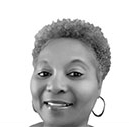
SHERRY CANNON
Last month I wrote this column about how I was managing sheltering in place. Little did I know at the time, that I was also surviving COVID-19.
In March and April, I was hospitalized –– both times with chest pain, headaches and elevated blood pressure. In each instance I was told there was no need to test for COVID-19.
We all are watching, I dare say in horror, as the numbers of COVID-19 cases increase daily around the country. It is almost inconceivable that in two short months the deaths attributed to the virus went from 38 on March 11 to over 81,000 on May 11.
COVID-19 cases have reached over 1.4 million people in the United States. The understanding of how the virus attacks our body is also constantly changing. Because I never experienced a fever or any type of respiratory problems, I was refused testing.
My symptoms were a dry cough, headaches, unstable blood pressure, loss of appetite and extreme fatigue. When the chest pain began, it felt like heartburn, so I took antacids that did nothing to relieve the chest. I finally called a friend to take me to the emergency room. I was admitted and the hospital ran a number of tests to determine if I was having a heart attack. I spent two days in the hospital, that first time and was sent home with a diagnosis of acid reflux and sinus problems.
The hospital also provided me with equipment to monitor my vitals daily, that was sent electronically to them. After a couple weeks the chest pain moved to my right shoulder. I was advised by my doctor’s office to go to the emergency. Once again, I was admitted and went through a battery of tests. Again, they ruled out heart problems, gall bladder issues and decide I needed to see a gastroenterologist. He determined that I did have some acid reflux, along with inflammation of the chest area, a condition called costochondritis.
Recently, at my request, my personal physician ordered a blood test to see if I had COVID-19 antibodies. The results came back that I did indeed test positive for the antibodies. After those results, my doctor was confident that all of my symptoms and the costochondritis are the direct results of the COVID-19 virus.
It has been over two months since I had that first cough, which lets me know that this virus affects individuals differently. There is a great gulf between those who are diagnosed with fever and respiratory issues and succumb quickly to the disease, to those who have no symptoms at all, to someone like me, whose immune system attacks its own body causing other problems, for an extended time. Because I knew something was wrong, I self-isolated, which hopefully stopped me from exposing other people to the virus.
I am convinced that the lack of a federal government coordinated effort to this pandemic has cost thousands of lives. Poor preparation for PPE has cost untold numbers of healthcare workers their lives. The lack of preparedness to test for over two months, once this virus reached our shores, put thousands of seniors citizens and nursing home workers’ lives at risk. According to the CDC, they forecast a total of 100,000 deaths attributed to COVID-19 by June 1.
I am choosing to share my experience to emphasize how difficult it was for me to get the medical community to take me seriously. It is important that we advocate for ourselves. You may not have a fever or suffer any respiratory symptoms with this virus, or you may not have any symptoms.
I believe that everyone should assume that they have been exposed and get tested. Practicing social distancing, wearing a mask, and sheltering in place has proven to be effective measures that I encourage us all to continue doing.
There are people who say that the sheltering in place executive order is an infringement of their civil rights. I call it an act of love and a moral responsibility. None of us would trade places with the families of the nearly 90,000 individuals, who have lost their lives to this horrific contagion.
Life is precious, every life is precious. I implore everyone, who reads this column, know that this highly contagious disease is not a respecter of persons. Even though elderly people, or individuals with underlying conditions may be more vulnerable, all of us are at risk.

1 comment for “Real Talk | Surviving COVID-19”